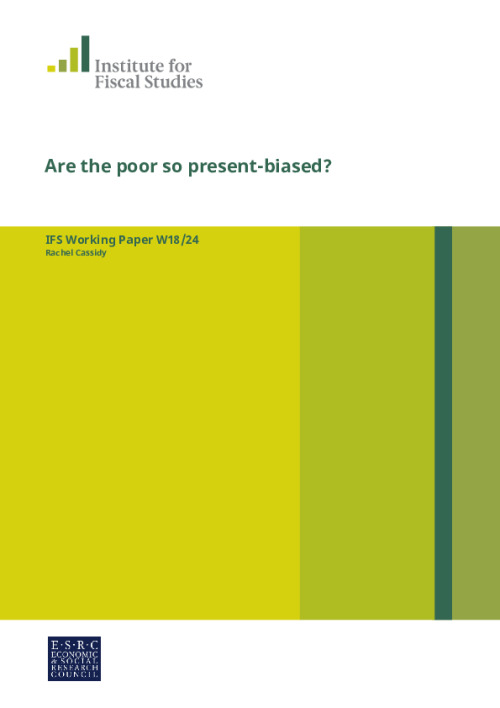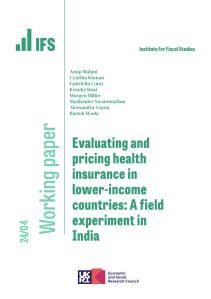Downloads

Download working paper
PDF | 559.58 KB
Estimates of "present-bias" among the poor may be exaggerated if poor individuals are credit-constrained and expect to have greater liquidity in the future. I conduct an experiment in rural Pakistan which provides causal evidence of this effect. I use windfalls to generate fully exogenous variation in subjects' liquidity constraints. I show that fluctuating liquidity has a signifi cant and sizeable effect on measures of time-inconsistency, which does not operate via cognitive functioning. Importantly, I establish that the causation runs from tighter liquidity constraints to appearing "present-biased" rather than truly present-biased individuals making choices which lead to tighter liquidity constraints.
Authors

Research Associate World Bank
Rachel Cassidy is a Research Associate of the IFS and a Research Economist at the World Bank's Africa Gender Innovation Lab.
Working Paper details
- DOI
- 10.1920/wp.ifs.2018.2418
- Publisher
- The IFS
Suggested citation
Cassidy, R. (2018). Are the poor so present-biased?. London: The IFS. Available at: https://ifs.org.uk/publications/are-poor-so-present-biased (accessed: 28 April 2024).
More from IFS
Understand this issue

Sure Start achieved its aims, then we threw it away
15 April 2024

Social mobility and wealth
12 December 2023

How important is the Bank of Mum and Dad?
15 December 2023
Policy analysis

Living standards since the last election
21 March 2024

Major challenges for education in Wales
21 March 2024

Sliding education results and high inequalities should prompt big rethink in Welsh education policy
21 March 2024
Academic research

Labour market inequality and the changing life cycle profile of male and female wages
15 April 2024

Evaluating pricing health insurance in lower-income countries: A field experiment in India
14 March 2024

There and back again: women’s marginal commuting costs
2 April 2024